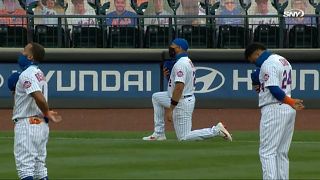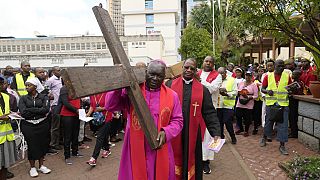London
From the Streets to the Screens
A rainbow of lavish costumes, parades, floats and sound systems booming with Caribbean music which usually can be seen, heard and felt around this time each year on the London streets, is going digital this time around.
Indeed, the world's second-largest festival, the Notting Hill Carnival, will hold in virtual form as a three-day digital event — in spite of the covid-19 pandemic.
The visual presentations, performances etc. have already been filmed across a month in preparation for the live streaming of the festival which will kick off August 28th bank holiday weekend with a film on the big screens of Piccadilly Circus.
British Afro-Caribbean Lives Matter
The Afro Caribbean British community is ready — as always, to raise their voices. Clary Salandy, artistic director of Mahogany Carnival Arts shares what the essence of the carnival is all about, "Carnival is a protest. We are all rebels…(laughs) and just being in Carnival, just taking part in Carnival, you are joining the commemoration and you are standing up for what is right, you're standing up for freedom, and so that's why it's really important.”
The carnival originated in the early 60s following 3 day-long riots in West London in 1958 - sparked by racial tensions within the Afro-Caribbean community. The unrest resulted in over 100 people arrested and this inspired Trinidadian journalist and human rights activist, Claudia Jones (known as “the mother of the Notting Hill Carnival”) to organise an indoor carnival to bring all the communities together. Hence, the almost 55-year-old cultural tradition that celebrates the history and emancipation of British Afro-Caribbean people is now an icon of England which attracts up to 2 million international visitors a year.
Covid-19 Precautionary Measures
Carnival executive director, Matthew Phillip, expressed the importance of honouring the traditional festival and “the thousands of people that spend all year creating incredible costumes and music. ”
He also emphasised the necessity of respecting covid-19 prevention measures, “Carnival is such an important part of people’s lives and a key celebration of the multiculturalism of the UK, and we have a responsibility to our community and pioneers to honour that. We also have a responsibility to protect the black community and our elders by respecting social distancing and taking Carnival away from the streets for this year. So this is a fantastic solution for 2020.”
Carolyn Roberts-Griffith, Queen of Notting Hill Carnival, also shared the importance of maintaining the tradition this year - which coincides with the global revival of the Black Lives Matter movement, "The scales of justice… was a costume we made a few years ago, and it was we were thinking and talking about justice in the world, justice to people, to races, to colour."
The Same but Different
Within the carnival’s tradition, the main message behind these elaborate costumes is breaking free from slavery and racism, while the music represents the life left behind by the Caribbean community after the emancipation of the freed enslaved Africans from the Caribbean.
The Notting Hill Carnival, although not being able to hold the usual huge in-person crowds, promises to be just as spectacular.













02:20
Meet the designer behind some of the outfits at this year's Notting Hill Carnival
02:20
Notting Hill Carnival not worried it will be threatened by unrest in UK
01:55
Airbus and Boeing show off their latest tech at Farnborough Air Show
02:15
Christie's showcases Saudi Arabia's most celebrated artist
02:20
Doctor Who's Ncuti Gatwa meets his wax statue
01:00
WATCH: The giant yellow pumpkin of London, Yayoi Kusama's latest masterpiece